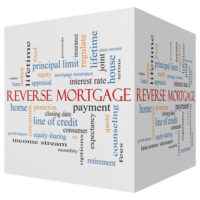Is a Reverse Mortgage Right for Me?

If you’re facing retirement, you may be wondering how you’ll fund your golden years. If you’ve been a homeowner for many years, steadily paying down your mortgage, you may be able to turn that equity into a practical way to help fund your retirement. Read on to learn about reverse mortgages, and discuss these loans with a real estate and mortgage attorney to help determine whether one might be right for you.
Reverse mortgage basics: Reverse mortgages, now widely known as Home Equity Conversion Mortgages (HECMs), are a way for homeowners aged 62 and over to draw cash from the equity they’ve developed in their home. These loans are available to those who have either completely paid off their mortgage or paid off a substantial portion thereof and who are able to continue to pay taxes and insurance on their home and plan to continue using it as their primary residence. HECMs become due when both the borrower and their spouse pass away, or both move out of the home, at which point the home is sold or the relocated borrower begins to make payments on the loan. Borrowers can never owe more on a reverse mortgage than the value of the home.
Ways to make use of reverse mortgage funds: Reverse mortgages can be used to fund a number of different expenses or purchases. Many borrowers take out an HECM to help cover existing expenses, such as medical debt, high-interest credit card debt, or even to pay off the balance of a traditional mortgage and eliminate those monthly payments with funds left over. Some even use HECMs taken out on their primary residences to purchase second homes.
Potential drawbacks of reverse mortgages: Taking out a reverse mortgage comes with up to $6,000 in origination fees, which is more than is required to be paid upfront for many other sources of credit. Additionally, HECMs require careful planning. If you begin drawing on the equity in your home through a reverse mortgage at too fast a pace or too young an age, you could end up running out of equity and be forced into repayment or foreclosure before you’re ready. If you had wanted to pass down your home to your children when you go, and do not wish to sell, then a reverse mortgage might not be a good solution. A real estate and bankruptcy attorney can help you find alternative ways to address potential bankruptcy or credit issues, if an HECM isn’t a good fit for you.
If you have legal questions about a New York real estate transaction and want to be sure your interests are protected, contact Hudson Valley real estate law firm Rusk, Wadlin, Heppner & Martuscello for a consultation on your case, in Marlboro at 845-236-4411, or Kingston at 845-331-4100.
